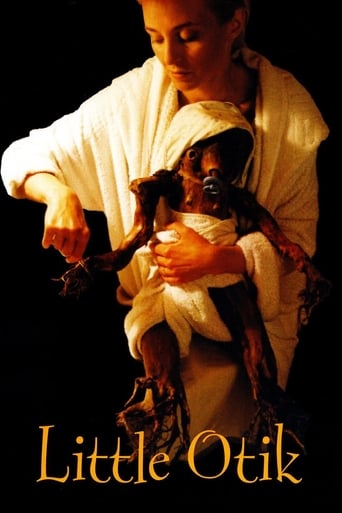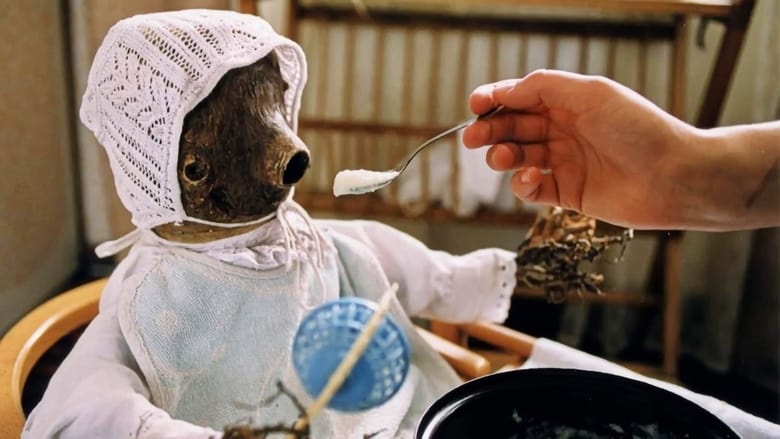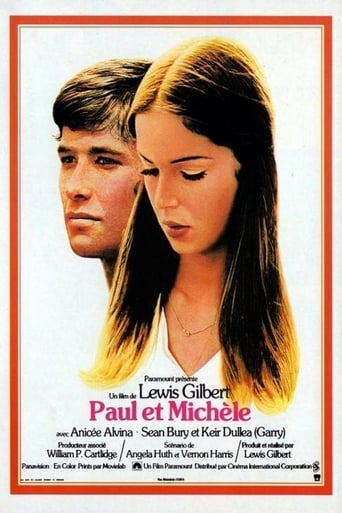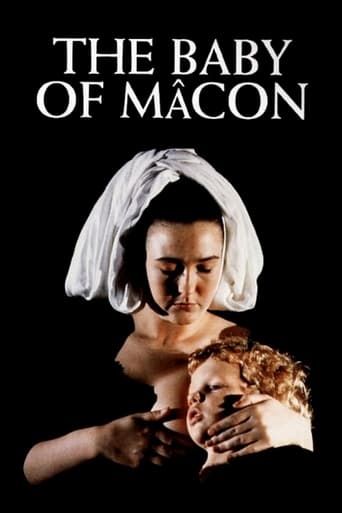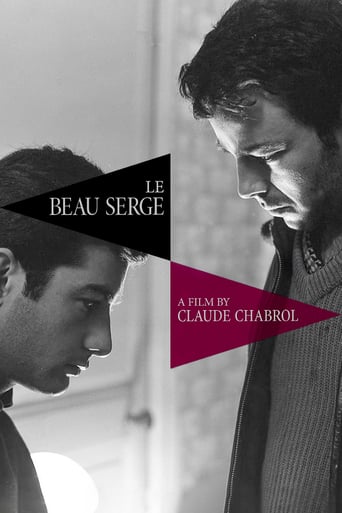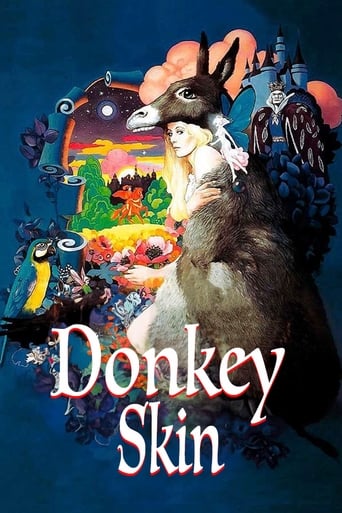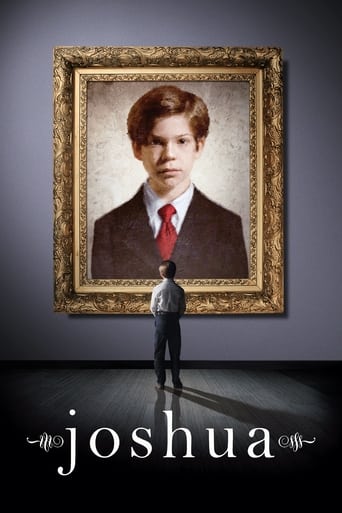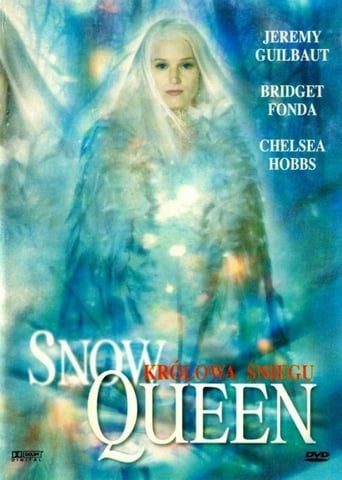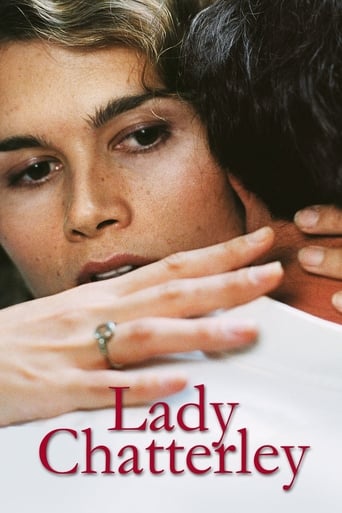Little Otik (2001)
When a childless couple learn that they cannot have children, it causes great distress. To ease his wife's pain, the man finds a piece of root in the backyard and chops it and varnishes it into the shape of a child. However the woman takes the root as her baby and starts to pretend that it is real.
Watch Trailer
Free Trial Channels
Cast


Similar titles
Reviews
Overrated and overhyped
Fantastic!
It really made me laugh, but for some moments I was tearing up because I could relate so much.
Yes, absolutely, there is fun to be had, as well as many, many things to go boom, all amid an atmospheric urban jungle.
I think it'd be fairly safe to say that Jan Svankmajer's 2000 Czech film Little Otik will be unlike most things, indeed anything, that you've ever previously seen; the film a quite mad but gloriously creative, often blackly amusing and frankly rather scary piece blurring lines between realism and surrealism whilst taking on a great deal of social satire and keeping a wholly self-aware eye on proceedings. I rather like films grounded within realistic enough realms covering people whom happen to stumble upon an otherworldly presence; a presence that arrives with its own infrastructure and makeup before just being let loose amidst the people and their problems with which we spent the opening. Little Otik is one of these films. If one were permitted to use hindsight, one might compare it favourably to a recent Canadian film entitled Splice; a film about those we sensed could exist and were going through the motions in life which came with some very real, very personal problems – both projects ending up happening to have this somewhat beastly, rather monstrous creation of an uncanny nature just crash land into proceedings mixing things up and allowing such a presence to act as the catalyst for a greater extent of dramatic content.The film eventually comes to follow the misadventures to that of Alzbetka (Adamcová), a young teen-aged girl living with her mother and father but, crucially, without siblings, in a humble part of the Czech Republic amidst several other patrons in a tower block. Her presence is one of a supporting act initially, the acts and experiences of certain neighbours paving way for her greater involvement. Alzbetka's life is one of a carefree and somewhat boisterous nature; the charging down the narrow stone stairwell in the process of chasing a ball, even when it bounds out of the main entrance and into the road thus nearly leading to tragedy, alluding to an energetic and adventurous person; something that goes hand in hand with what is a distinct characteristic of curiosity - the reading of certain books on contraception another of her little hobbies but one of which is frowned upon by a father, whom looks more temperamental than he probably is.In the mean time, neighbouring married couple Karel (Hartl) and Boena Horák (Zilková) cannot conceive; Karel's job as a doctor seeing him come into contact on occasion with an array of pregnant women whom he must aid and treat forcing him into working with, on a professional level, what it is he cannot aid or work with on a personal level. He glances out of his office window, daytime hallucinations alluding to a greater extent of frustration bordering on mental illness when he 'observes' arrays of newborns being handed out as if an exchange at a market stall highlighting his perception of everybody else's apparent ease as to which to garner a child. The Horák's secluded retreat, merely a shack with a small garden away form the bustle of the town, acts as the locale in which an event straddling that line between what could be perceived as a miracle or a curse occurs; the uprooting of a rogue tree stump, and the mock caring for it as if it were a newborn, seeing Boena forcefully tear everything off of a table so as to make room to cater for it such is her desperation to play the mothering role. It's here the film leaps from its Czech working class foundations and into some other realm; this caring, against all odds, eventually giving way the damned chunk of wood coming alive and adopting human baby-like characteristics: the titular Otik. The situation at once calls to mind the likes of the famous Pinocchio fairy tale and, given the premise of the mother's maternity situation plus shack-like locale, the coming of Christ as this miracle birth unfolds.Despite the high concept, not for one second does director Svankmajer deviate from the giddiness of such a selling point, nor other necessary proceedings, and allow for the item overbearing all to act as the sole focal point. Such an action would render the film a freak show; rather, the integration of the concept to act as a band around which deeper studies of character frameworks; observations on morals and social commentary as well as the hybridising of genres are allowed to play out. Take, for instance, Michael Bay's 2007 science-fiction film Transformers; a piece which cannot get past the fact it has, at the core of it, machines capable of turning from an everyday piece of machinery into a large robot - as a result, becomes so overwhelmed by its U.S.P. or essential premise that it submits to the continual gratification of the idea leading onto a mess of character study and genre demands trailing miles behind.The film's morphing into this odd meshing of serial-killer sub-genre conventions as people in the block go missing blends well with the constant questions of ethics the parents ask themselves in relation to killing it; caring for it and keeping it a secret. Alzbetka's role as that of a supporting act is gradually manoeuvred, impressively, into a more recurrent character whose strand is at once an interesting tale of detection later playing more as a tragedy. With this, the film is peppered with a wry commentary on the Americanised, consumerism driven lifestyle that has seemingly infiltrated this, an apartment block acting as an epitomisation of Czech living, via a series of televised advertisements; advertisements speaking of products promising much which consist of shots dissolving into actual physical incarnations of the things malfunctioning in the home. Svankmajer's film, a body horror in which characters venture out to see a body horror movie and then come home criticising it, is a knotting of several codes and genres together to produce something at once gleefully original and impressively played.
To those who won't go near World cinema and can't even be talked into giving it a try, Little Otik will (justifiably, maybe) bolster their viewpoint with the oft conceived negative aspects they see some world cinema to have with many elements contained within this part-animated, Czech horror/comedy/drama. It's incoherently weird. A sassy young Czech girl, our protagonist has long blonde ponytails and talks a lot. She has typically Czech parents (or as stereotypes would have us believe); father drinks a lot and watches TV, mother makes vegetable soup with few vegetables - and other various pureed concoctions - all in close up. They live in the next apartment to a young barren couple. Otik, a tree stump, is dug up by the husband and given to comfort his distraught wife, after they return with the bad news from the fertility clinic. This lump of wood has knots and twigs sprouting where male human bodily parts are situated and look rather obviously so. We are left in no doubt as to which parts are what. 'Little' Otik immediately becomes surrogate son to the mother as she takes to it as her very own.One of the most creepy things I've seen, ever, is the animated wooden mouth - and moving 'wooden' lips of this log, suckling on the lovely, womanly breast of its 'mother' as it feeds. Superbly done. She beams, besotted, across to her husband - a perplexed and rather nerdy looking office clerk.To cut a long story short (this is one LONG movie, especially if it's viewed on a commercial TV station - with advert breaks it runs to over 2.5 hours) Otik grows into a giant meat-eating freak, cuckoo-like in its ever open greed for more. First the dog gets 'it', (or was it the cat?) then the janitor, who lusted after the young girl with the pony-tails and soon Otik finds the not particularly welcomed, but plump social worker, come to check up on the "baby" pretty tasty, too! And whatever happened to the postman? The couple themselves, the family in the next apartment, the young girl especially, all try to cover up the ever more ridiculous scenarios, each becoming ever more hilarious. Whenever we see Otik other than a when in his log-like state, he is animated, which means he springs to life, stop-go and superimposed imagery transforming, he changes quickly, often violently, at times crudely and at others skilfully. Reminding me of the Hungarian movie 'Hukkle' (Hiccup), where the basic needs and functions surrounding birth, food and death seem to be under intense scrutiny, Little Otik both celebrates and deplores these themes. Drawn from folklore and even a fairytale, the story triumphs and decries them. Taints of Polanski's Rosemary's Baby creep through; that distaste, that intense sense of wrongness.As to the best in East European cinema bit; well, it's unique, for one. Individual, as in that it genuinely produces something far more scary than bumps in the night and big flashes of thunder. Because it relates to our very base human instincts. It is also at times outrageously funny. I've seen this brilliant, yet weirdly bad film twice - about the number of times its been on UK TV that I'm aware of. One could score it anything from 1 point, to ten; with full justification. Go for it if you feel you could be up for it, but if you're not sure about the whole world cinema scene, steer clear. I wouldn't want this oddity to influence you badly against some of the best cinema going.
There are many forms of horror, and most of them are international. However, there is the special Horror of Czech children stories, and it is truly unique. Without doubt, Jan Svankmajer is its leading representative in film. Husserl wrote that for the constitution of consciousness with its transcendental creations, reality in the sense of real world is not necessary. Thus, the productions of a transcendental Ego are self-consistent, although they may be senseless. Analyse Otesanek under this perspective. Remember that Kafka wrote about Odradek: "The whole appears senseless, but it is in his genre complete". The problems for the family do not start because the husband finds a piece of wood that has remote similarity to a baby. The problem arises when his wife decides that this object is subject and because her will changes reality. Otesanek penetrates from his own ontological space into the ontological space of the family and their environment. Like Kafka's "Odradek", Otesanek has a name, a certain shape, a distinct behavior and lives in a certain place, but all that is by far insufficient to disclose the mysterious hybrid between object and subject that Otesanek is. When you watch the movie, notice that you never see a picture of Otesanek. You only see the images in the book of the little girl - but also be aware that, "Thou shalt not make unto thee any graven image"!
The worldview that drives this movie is the notion that you cannot escape the stories of the past. Ruiz makes movies with this point, especially one I saw recently, "Geneologies." In this view, the teller doesn't capture a story, it is the other way around. There are only so many stories, and when one captures you, it will engulf you, only to be possibly bested by a stronger one.That's the story within this little movie, done well enough for TeeVee, I suppose. But it is also the story about why this and all Czech cinema is so defeatist. Yes, I know the Czech republic is a tiny nation, so we shouldn't expect much. But compared say, to New Zealand, the contrast in imagination is striking. Sure, they were bludgeoned by successively thuggish occupiers, but look at Polish cinema. Some are truly lyrical and life-altering things, no? What's happened with this movie: it has been captured by the larger Czech arc of defeat. That larger arc drives this and completely overtakes the best efforts of Svankmeir, who in a few earlier projects really seemed to have some promise as a visual artist if not a long form storyteller.The movie's story, since you likely won't see it, is of a couple who out of emotional need take a piece of yard waste as an infant, and he grows too big for his situation, eating everything he encounters. Meanwhile, a little girl in the same building follows that larger story by reading the "original" in a children's book. So she knows the score, and how it will end.Ted's Evaluation -- 2 of 3: Has some interesting elements.

